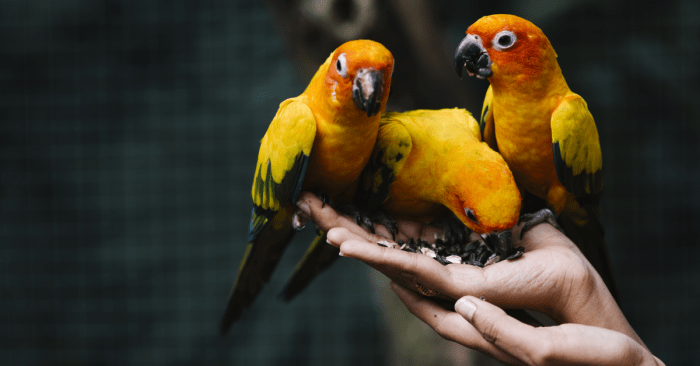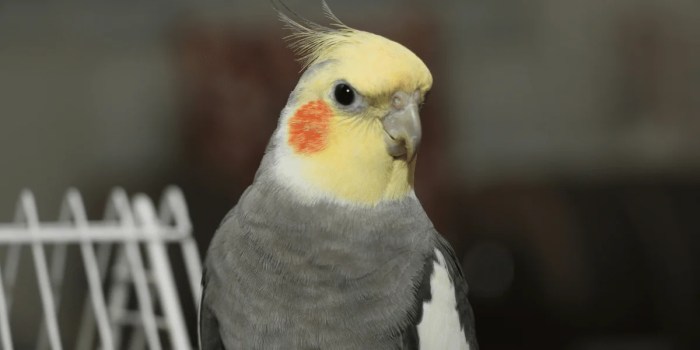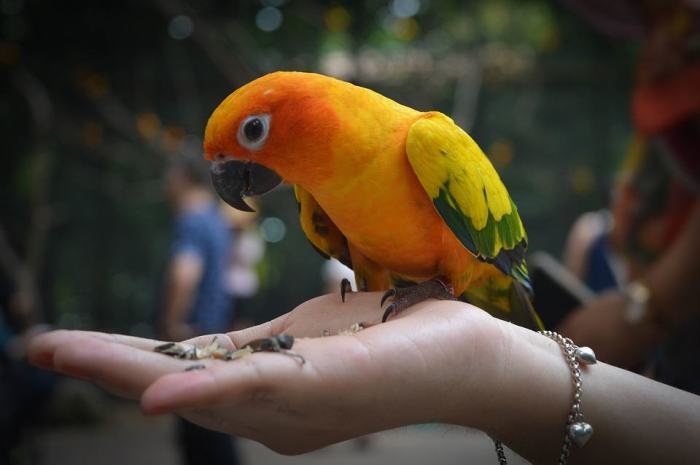How to Care for a Bird: 8 Tips for a Happy and Healthy Bird sets the stage for this informative guide, offering readers a comprehensive look at essential bird care practices in a casual formal language style.
Delve into the following sections to discover key insights and practical tips for ensuring your feathered friend’s well-being.
Importance of Proper Nutrition for Birds

Proper nutrition is essential for the health and well-being of your pet bird. Providing a balanced diet ensures that your bird receives all the necessary nutrients to thrive and lead a happy life.
Essential Nutrients for Birds
- Birds require a variety of nutrients such as proteins, carbohydrates, fats, vitamins, and minerals to maintain their health.
- Proteins are essential for muscle development and growth, while carbohydrates provide energy for daily activities.
- Fats are important for maintaining healthy skin and feathers, and vitamins and minerals play a crucial role in various bodily functions.
Offering a Variety of Foods
- It is important to offer your bird a variety of foods, including fruits, vegetables, seeds, and pellets, to ensure a well-rounded diet.
- Fruits and vegetables provide essential vitamins and minerals, while seeds and pellets offer a good source of protein and carbohydrates.
- Rotate different types of foods to prevent boredom and ensure your bird receives a wide range of nutrients.
Commercial Bird Food Options
- There are various types of commercial bird food available in the market, including seed mixes, pellet blends, and formulated diets.
- Seed mixes are a popular choice but may not provide a complete and balanced diet. Pellet blends and formulated diets are designed to meet all of your bird’s nutritional needs.
- Consult with your veterinarian or avian specialist to determine the best commercial bird food for your specific bird species.
Creating a Safe Environment for Your Bird

Creating a safe environment for your bird is essential to ensure their well-being and happiness. Here are some key aspects to consider when setting up your bird’s living space:
Ideal Cage Setup
- Size: The cage should be large enough for your bird to move around comfortably and stretch its wings. Make sure it allows for ample space for perches, toys, and food and water dishes.
- Perches: Provide a variety of perches of different sizes and textures to help exercise your bird’s feet and prevent foot problems.
- Toys: Include toys in the cage to keep your bird mentally stimulated and prevent boredom. Toys that encourage natural behaviors like foraging and chewing are ideal.
Birdproofing Your Home
- Avoid toxic plants and materials that can harm your bird if ingested.
- Keep windows and doors closed or use screens to prevent your bird from flying out.
- Secure electrical cords and outlets to prevent electrocution accidents.
Proper Ventilation and Lighting
- Ensure good air circulation in the room where your bird’s cage is located to prevent respiratory issues.
- Provide natural light or full-spectrum lighting to mimic the bird’s natural habitat and promote vitamin D synthesis.
- Avoid placing the cage in direct sunlight to prevent overheating and ensure your bird has shaded areas to retreat to.
Mental Stimulation and Social Interaction for Birds

Keeping your bird mentally stimulated and providing social interaction is essential for their overall well-being and happiness.
Need for Mental Stimulation
Birds are intelligent creatures that require mental stimulation to prevent boredom and behavioral issues. Providing a variety of toys, puzzles, and activities can keep your bird engaged and mentally sharp.
Methods to Socialize and Build Trust
- Spending quality time with your bird daily, talking to them, and offering treats can help build trust and strengthen your bond.
- Handling your bird gently and positively reinforcing good behavior can make them feel safe and secure in your presence.
- Allowing your bird to explore outside of their cage under supervision can also provide socialization opportunities and mental stimulation.
Importance of Regular Interaction
Regular interaction with your bird is crucial for their emotional and mental well-being. Birds are social animals that thrive on companionship and attention from their owners. Setting aside time each day to interact with your bird, whether through talking, playing, or training, can help prevent loneliness and ensure a happy, healthy bird.
Final Review

In conclusion, mastering these tips will not only keep your bird happy and healthy but also strengthen the bond between you and your avian companion. Implement these strategies today for a flourishing relationship with your feathered friend.